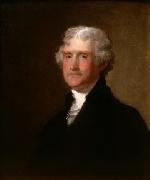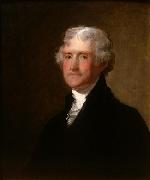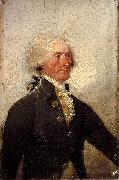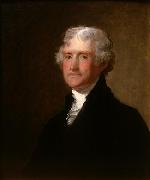Wholesale Oil Painting No Minimum |
|||||||||||
|
|
|||||||||||

|
|||||||||||
|
|
|
||||||||
Gilbert Charles Stuart1755-1828 Gilbert Charles Stuart Locations Gilbert Charles Stuart (born Stewart) (December 3, 1755 ?C July 9, 1828) was an American painter from Rhode Island. Gilbert Stuart is widely considered to be one of America's foremost portraitists. His best known work, the unfinished portrait of George Washington that is sometimes referred to as The Athenaeum, was begun in 1796 and left incomplete at the time of Stuart's death in 1828. The image of George Washington featured in the painting has appeared on the United States one-dollar bill for over one century. Throughout his career, Gilbert Stuart produced portraits of over 1,000 people, including the first six Presidents of the United States. His work can be found today at art museums across the United States and the United Kingdom, most notably the Metropolitan Museum of Art in New York City, the National Gallery of Art in Washington, D.C., the National Portrait Gallery in London, and the Museum of Fine Arts in Boston. |
||||||||
|
|
||||||||
Thomas Jefferson
Thomas Jefferson Painting ID:: 4517 |
1821
26" x 21 7/16"
National Gallery of Art, Washington DC
1821 26" x 21 7/16" National Gallery of Art, Washington DC |
|||||||
|
|
||||||||
Gilbert Stuart1755-1828 Gilbert Stuart was born in North Kingston, R.I., on Dec. 3, 1755. At the age of 13 or 14 he studied art with the Scottish painter Cosmo Alexander in Newport. With Alexander he made a tour of the South and a journey to Edinburgh, where Alexander died in 1772. For about a year Stuart remained, poverty-stricken, in Scotland, but finally, working as a sailor, he managed to get back to America. There he executed a few portraits in a hard limner fashion. With the Revolutionary War threatening, his family, who had Tory sympathies, fled to Nova Scotia, and Stuart sailed for London, where he remained from 1775 to 1787. For the first 4 or 5 years, Stuart served as the first assistant of American expatriate painter Benjamin West, who had rescued him from poverty. From the first, Stuart showed an interest only in portraiture and had no desire to go into the branch of history painting West practiced. After his apprenticeship, Stuart became London's leading portrait painter, next to Joshua Reynolds and Thomas Gainsborough, whose style he emulated, as in a rare full-length portrait of William Grant of Congalton as The Skater (ca. 1782). For a while Stuart lived in splendor, but being a bad businessman and a profligate spender, he was in constant debt. He lived in Ireland from 1787 to 1792 and then returned to America to make a fortune, |
||||||||
|
|
||||||||
|
|
Thomas Jefferson
Thomas Jefferson Painting ID:: 74304 |
National Gallery of Art, Washington
c. 1821
66 cm x 54.5 cm
cjr National Gallery of Art, Washington c. 1821 66 cm x 54.5 cm cjr |
||||||
|
|
||||||||
John Trumbull1756-1843 John Trumbull Gallery Trumbull was born in Lebanon, Connecticut, to Jonathan Trumbull, who was Governor of Connecticut from 1769 to 1784. He entered the 1771 junior class at Harvard University at age fifteen and graduated in 1773. Due to a childhood accident, Trumbull lost use of one eye, which may have influenced his detailed painting style. As a soldier in the American Revolutionary War, Trumbull rendered a particular service at Boston by sketching plans of the British works, and witnessed the famous Battle of Bunker Hill. He was appointed second personal aide to General George Washington, and in June 1776 deputy adjutant-general to General Horatio Gates, but resigned from the army in 1777. In 1780 he traveled to London where he studied under Benjamin West, who suggested to him that he paint small pictures of the War of Independence and miniature portraits, of which he produced about 250 in his lifetime. On September 23, 1780 and October 2, 1780, British agent Major John Andr?? was, respectively, captured and hanged as a spy in America. News reached Europe, and as an officer of similar rank as Andr?? in the Continental Army, Trumbull was imprisoned for seven months in London's Tothill Fields Bridewell. In 1784 he was again in London working under West, in whose studio he painted his Battle of Bunker Hill and Death of Montgomery, both of which are now in the Yale University Art Gallery. In 1785 Trumbull went to Paris, where he made portrait sketches of French officers for The Surrender of Cornwallis, and began, with the assistance of Jefferson, Declaration of Independence, well-known from the engraving by Asher Brown Durand. This latter painting was purchased by the United States Congress along with his Surrender of General Burgoyne, Surrender at Yorktown, and Washington Resigning his Commission, and these paintings now hang in the United States Capitol. Trumbull's The Sortie Made by the Garrison of Gibraltar, 1789, owned by the Boston Athenaeum, is now in the Boston Museum of Fine Arts. |
||||||||
|
|
||||||||
|
|
Thomas Jefferson
Thomas Jefferson Painting ID:: 84721 |
1788(1788)
Medium oil on panel
Dimensions 12.1 x 7.6 cm (4.8 x 3 in)
cyf 1788(1788) Medium oil on panel Dimensions 12.1 x 7.6 cm (4.8 x 3 in) cyf |
||||||
|
|
||||||||
Gilbert Stuart1755-1828 Gilbert Stuart was born in North Kingston, R.I., on Dec. 3, 1755. At the age of 13 or 14 he studied art with the Scottish painter Cosmo Alexander in Newport. With Alexander he made a tour of the South and a journey to Edinburgh, where Alexander died in 1772. For about a year Stuart remained, poverty-stricken, in Scotland, but finally, working as a sailor, he managed to get back to America. There he executed a few portraits in a hard limner fashion. With the Revolutionary War threatening, his family, who had Tory sympathies, fled to Nova Scotia, and Stuart sailed for London, where he remained from 1775 to 1787. For the first 4 or 5 years, Stuart served as the first assistant of American expatriate painter Benjamin West, who had rescued him from poverty. From the first, Stuart showed an interest only in portraiture and had no desire to go into the branch of history painting West practiced. After his apprenticeship, Stuart became London's leading portrait painter, next to Joshua Reynolds and Thomas Gainsborough, whose style he emulated, as in a rare full-length portrait of William Grant of Congalton as The Skater (ca. 1782). For a while Stuart lived in splendor, but being a bad businessman and a profligate spender, he was in constant debt. He lived in Ireland from 1787 to 1792 and then returned to America to make a fortune, |
||||||||
|
|
||||||||
|
|
Thomas Jefferson
Thomas Jefferson Painting ID:: 91578 |
1821(1821)
Medium oil on panel
Dimensions 66 x 54.5 cm (26 x 21.5 in)
cyf 1821(1821) Medium oil on panel Dimensions 66 x 54.5 cm (26 x 21.5 in) cyf |
||||||
|
|
||||||||
|
Gilbert Stuart 1755-1828 Gilbert Stuart was born in North Kingston, R.I., on Dec. 3, 1755. At the age of 13 or 14 he studied art with the Scottish painter Cosmo Alexander in Newport. With Alexander he made a tour of the South and a journey to Edinburgh, where Alexander died in 1772. For about a year Stuart remained, poverty-stricken, in Scotland, but finally, working as a sailor, he managed to get back to America. There he executed a few portraits in a hard limner fashion. With the Revolutionary War threatening, his family, who had Tory sympathies, fled to Nova Scotia, and Stuart sailed for London, where he remained from 1775 to 1787. For the first 4 or 5 years, Stuart served as the first assistant of American expatriate painter Benjamin West, who had rescued him from poverty. From the first, Stuart showed an interest only in portraiture and had no desire to go into the branch of history painting West practiced. After his apprenticeship, Stuart became London's leading portrait painter, next to Joshua Reynolds and Thomas Gainsborough, whose style he emulated, as in a rare full-length portrait of William Grant of Congalton as The Skater (ca. 1782). For a while Stuart lived in splendor, but being a bad businessman and a profligate spender, he was in constant debt. He lived in Ireland from 1787 to 1792 and then returned to America to make a fortune, Thomas Jefferson 1821(1821) Medium oil on panel Dimensions 66 x 54.5 cm (26 x 21.5 in) cyf |
||||||||
|
|
||||||||
|
Prev Next
|
||||||||
|
|
||||||||
|
Related Paintings to Gilbert Stuart :. |
||||||||
|
|
||||||||
|
CONTACT US |




